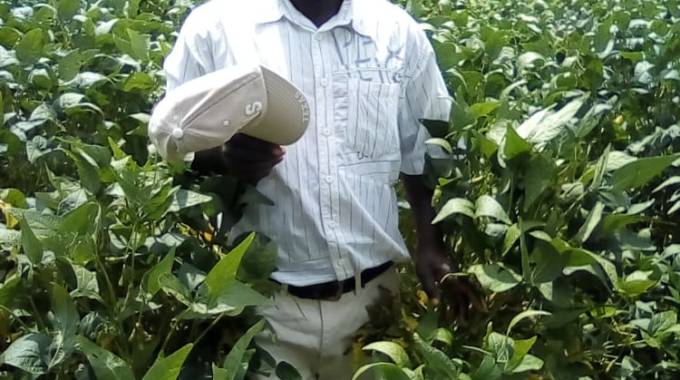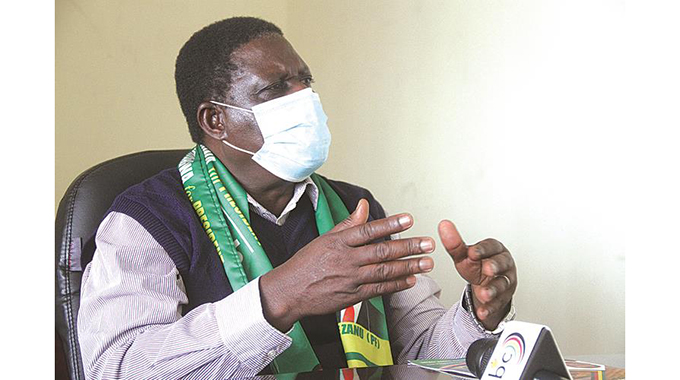Agritex training contributes to improved service delivery

Munya Simango Correspondent
The extension officers who were trained under the European Union (EU)-funded Zimbabwe Agricultural Knowledge and Innovation Services (ZAKIS) project have sharpened their skills and have improved service delivery to farmers.
The training programme, which is being implemented by the training department within Agritex, is designed to ensure that extension officers are adequately prepared to meet the needs of farmers and contribute to the transformation of Zimbabwe’s agriculture sector.
The programme involves continuous on-the-job learning through workshops, refresher courses, and self-directed learning on digital platforms such as the recently launched in-service training application.
In a recent interview, the agriculture extension officer in ward 21 of Chegutu District, Mr Tinothious Wabatagore said, “Our work involves advising farmers and sharing agricultural information with them. The ZAKIS training programme has allowed us to improve our service provision to farmers. This is because we are now getting new knowledge on farming practices, new value chains and digital extension methods which we are now cascading down to farmers.”
ZAKIS head of project Mr Kumbirai Nhongo said that the initiative is in line with pillar three of the Agriculture and Food Systems Transformation Strategy (AFSTS), which identifies efficient agricultural knowledge, technology, and innovation system as one of the key drivers for modernizing the sector.
“The training programme complements government’s Agricultural Recovery Plan, which places the capacitation of extension services delivery as one of the key focus areas. It is also a response to the knowledge gaps that were identified during the farmer and extension needs assessment surveys which were carried out at the inception of the ZAKIS project,” said Mr Nhongo.
The Agritex officers have so far received training on the subjects which the needs assessment surveys identified. These include e-extension, fish farming, field protocols, artificial insemination, weed management, crop and livestock production, irrigation management, conservation agriculture (Pfumvudza), Fall Army Worm control, interpretation of soil analysis results, infield rainwater harvesting and post-harvest management.
Since 2019, the programme has trained over 300 extension officers in Chegutu, Matobo, Insiza, and Mhondoro-Ngezi Districts.
Mr Wabatagore said, “The training has had a great impact on us extension officers. I now provide a better service to farmers. Without this knowledge, our services and advice were very shallow, and farmers had lost confidence in us.”
He said that the improved service has motivated farmers to venture into new value chains and adopt new farming technologies.
“I can now technically manage setting up fishponds and production of fish. This is the kind of knowledge that we did not have before. Last year I provided aquaculture training to 43 farmers in my ward, and so far, seven of them have started fish farming,” said the ward 21 extension officer.
The programme also provided digital extension training to 290 extension officers in the target districts and equipped them with smartphones and tablets.
Mr Wabatagore said that the 305 farmers in his ward have embraced e-extension and that he now disseminates information to farmers through WhatsApp and SMS.
“Every farmer now has a phone and e-extension helps us to provide a timely service because we no longer rely solely on time-consuming farm visits. Also, I now find useful information on the internet and share it with farmers on WhatsApp groups. This allows me to reach more farmers in a short space of time,” he said.
To date, the trained officers have in turn cascaded their new knowledge to over 1000 farmers in the four districts. According to the ZAKIS 2021 annual report, a recent survey revealed that 79.1 per cent of the farmers in the target districts are satisfied with the services provided by Agritex.
This shows a marked growth on the 2018 baseline satisfaction level of 54 per cent, which was reported in a survey that was conducted at project inception.
A farmer in ward 21 of Chegutu District, Mr Albert Gunduza said that his community is happy with the improved services that they are getting from Agritex.
“We have benefited a lot from the training and advice that we are now receiving from our extension officers. We are seeing a great improvement and we are confident that our productivity and incomes will improve.
“The extension officers are conducting practical demonstrations and we are learning by observing. Last season we had good crops because we were trained on the proper methods of land preparation, weed control, planting and fertilizer application,” said Mr Gunduza.
The ZAKIS project is part of the EU funded Zimbabwe Agricultural Growth Programme (ZAGP), a response to the challenges within the country’s agriculture sector through a €40 million financial support package from the EU.
It seeks to improve Zimbabwe’s agriculture sector by enhancing the dissemination of agricultural knowledge and stimulating innovation through strengthening the working links among agricultural research, education, and extension services.
The project is implemented by a consortium of local and international agricultural specialist NGOs, comprising Welthungerhilfe (WHH), International Crops Research Institute for the Semi-Arid Tropics (ICRISAT), Community Technology Development Organisation (CTDO), and Sustainable Agriculture Technology (SAT).










Comments